When Beverly Tillery appeared on “PBS NewsHour” last May to speak about the epidemic of violence against transwomen of color, she made a splash not just for what she said, but also for what she wore: a black V-neck that read “black women lead unbought and unbossed” accented beautifully with a pair of afro-pick earrings. She was informed of the interview only a few hours before, so her outfit wasn’t necessarily a choice.
“It’s almost unintentional, but I represent my culture,” she tells GO. “That is who I am. It’s what makes me feel good. I could walk into the office with a Maxine Waters t-shirt on. Those things give me strength and they connect me to my culture — who I am, my community.”
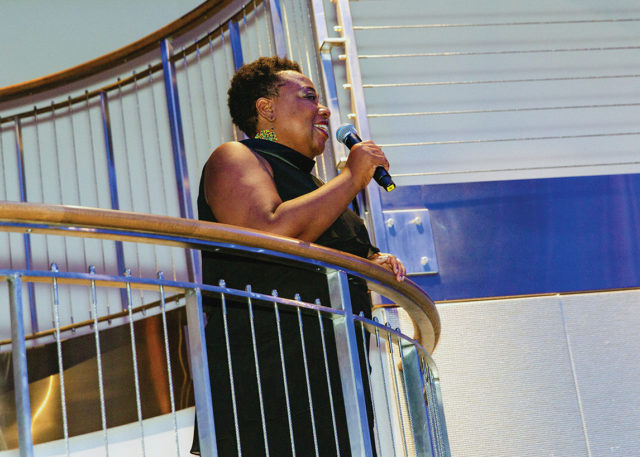
As the shirt says, Tillery is a black woman who leads, unbought and unbossed. She is the first woman of color to serve as the executive director for The New York Anti-Violence Project, the oldest and largest organization in the country that works to end violence against LGBTQ+ and HIV-affected communities. Founded in 1980 in response to a series of attacks against gay men, the AVP began as a free hotline and support service for survivors of violence. Today, the New York City-based program is “the oldest and largest organization in the country that works to address and end violence in the [entire] LGBTQ community,” Tillery proudly states. AVP coordinates the National Coalition of Anti-Violence Programs and offers numerous avenues of support to those affected by violence, including a bilingual 24-hour hotline, counseling and legal services, and financial planning — all, as Tillery notes, “free of charge.”
“We are lucky to be able to address violence in a number of ways by providing services to folks directly,” she tells GO, “and we do the longer term work of organizing and bringing people together to affect long-term systemic change.”
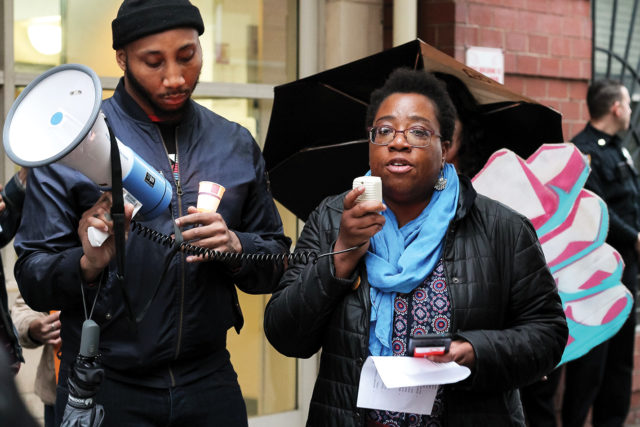
Tillery, who assumed the executive directorship in October 2015, is one of the few women of color to sit at the helm of a national LGBTQ+ organization. Her prior experience as an organizer required more behind-the-scenes work, supporting, training, and encouraging others to assume the mantle of visible leadership; however, her own vision of leadership is challenging this dichotomy — especially at a time, she says, when women of color are taking an active role in challenging and changing our existing values, systems, and structures. “I think we can bring new ideas, new visions. I think we lead differently,” she says.
Under her leadership, AVP expanded the Economic Empowerment Program in 2016, which provides clients with avenues toward greater economic stability, including debt-reduction, budgeting, and career planning. The organization, in partnership with the mayor’s office and other organizations, completed its first series of Transgender and Gender Non-Conforming Forums in order to gather information on the violence faced by transgender and non-conforming individuals across New York’s five boroughs. In 2017, the organization launched a Transgender and Gender Non-Conforming Leadership Academy, with the aim of training future civic and community organizing leaders through an intensive 6-month program. They also continue to provide legal support for those particularly vulnerable under Trump administration policies.
Social justice has always been in Tillery’s bones. As a child, she recalls rooting for the underdog, a determination solidified by her high school years among the super-wealthy at a Massachusetts boarding school, where she developed an awareness of class inequality, and later as a student at John Hopkins during the anti-apartheid movement. But at John Hopkins, she also discovered that many of her peers were too caught up in their own studies to care much about the injustices around them, even when a professor on campus taught in his sociology class that black people had brains that were smaller than their white counterparts — a pseudo-scientific theory that is rooted in eugenics and embraced by the white supremacist movement.

“I was incensed,” she says. And while there were students who took the matter to the Black Student Union, “there were plenty who were like, ‘We don’t have time.’ So, I think things like that for me — seeing people observing but not doing anything about it — it just didn’t sit right with me. And then at some point, I started doing community organizing, and once I did, it felt like it was the right thing.” It was then that she realized that it was “the thing that [she’d] been looking for.”
This dual awareness of seeing things go wrong at both the global and local perspectives led Tillery to pursue a path in social justice that operated on both levels. She worked as an organizer for ACORN and as a field program director for Amnesty International before joining Lambda Legal in 2004 as the Director of Community Education and Advocacy. At the time, the organization was dealing with the earliest successes, and more often, setbacks of marriage equality on the state-wide scale; their newly-designed outreach program gave Tillery a chance to use her skills for more grassroots community work. “I had been trained in popular education, which is all about using training and education to help communities tap into what they already know and use that as a transformative tool,” she says. “It seemed like a perfect marriage to really bring together where they were at and the skills and experiences I had.”
Her proudest work with Lambda, she says, occurred when her team worked on the ground in local communities, which allowed them to make advancements in programs dedicated to immigration rights and police violence. The latter provided an early collaboration between Lambda and AVP. With Lambda focused more on issues at a national level, Tillery “wanted to be connected to organizations that were more on the ground.” So, she says, she contacted AVP, and “just started a relationship where we would check in with each other and talk about what we were thinking and how the work was advancing.” The collaboration led to the creation of a police violence institute and gave Tillery insight into AVP. When the executive director position opened up, “folks convinced me to try for it.”
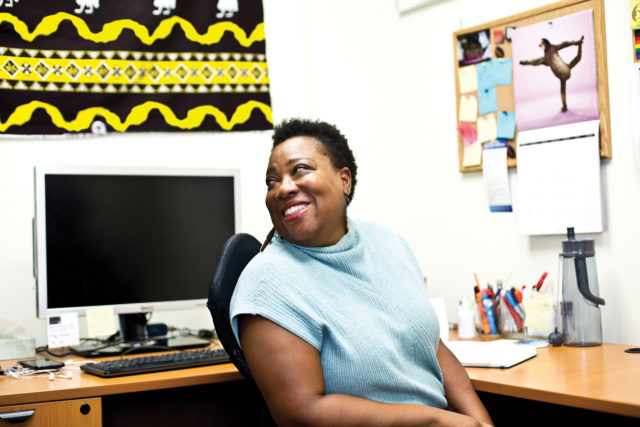
For nearly forty years, AVP has provided both the education and outreach that has been an integral part of Tillery’s own experience. In addition to tracking incidents of violence against LGBTQ+ persons, the organization offers support for survivors of violence including advocacy during legal and social service proceedings, short-term counseling, and crisis intervention and safety planning. Additionally, their Community Organizing and Public Advocacy Department (COPA) works with local organizations, law enforcement, and service providers to offer training and push policy proposals to end systematic violence against LGBTQ+ persons. Other programs provide services that reduce additional systematic inequalities that can lead to violence. The Transgender and Gender Non-Conforming Forums address the direct concerns of community members, such as access to health care and affordable housing, while the Economic Empowerment Program looks to break the cycle of violence by preparing clients for financial stability and independence.
Although the Project’s immediate impact is felt in the five boroughs of New York, it’s also responsible for coordinating the National Coalition of Anti-Violence Programs (NCAVP), a consortium of fifty plus anti-LGBTQ+ violence organizations nationwide. Since 1996, the NCAVP has produced yearly research reports charting acts of hate and intimate partner violence against LGBTQ+ persons nationwide.
Tillerly came into the directorship at a tumultuous time for the national LGBTQ+ community. Just over a year after her appointment, the 2016 election ushered in an age of hateful rhetoric directed toward minority and marginalized communities, which many, including Tillery, link to the rise in violent crimes against members of these groups. According to the NCAVP’s 2018 Crisis of Hate report, the number of individual anti-LGBTQ+ homicides has been on the rise since 2013, with the highest numbers (52) recorded by the end of 2017. Of the 52 homicides in 2017, 20 of the victims were queer, bisexual, or gay cisgender men and 22 were transgender women of color. Additional tracking conducted the same year by GLAAD identified 37 total reported transgender victims of violence for the full year.
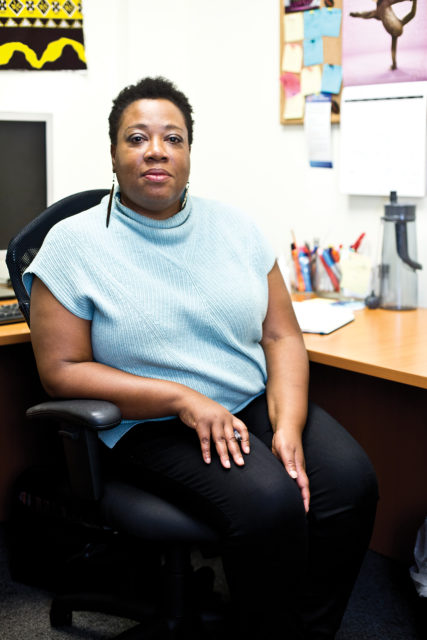
The trend of violence has since continued, specifically against transgender women of color. While the last available NCAVP report is from 2017, the Human Rights Campaign has reported 26 murders of transgender individuals, mostly women of color, in 2018. They’ve recorded 22 known homicides of transgender women of color this past year.
“I think what we’re seeing is the uncovering of what has always been there,” Tillery says. “We know that it has always been there. It was just kind of pushed back.” For transwomen of color, especially Black transwomen, who sit at the intersections of oppression, the problem is even more severe. “It’s not surprising with the intensity around racism, homophobia, and transphobia that we’re seeing trans women of color being murdered and attacked at such a high rate. They represent all the things that people right now are clearly pushing back against.” Tillery asserts that “there are all of these ways [that] those layers of oppression are making … black trans women the victims of all of this violence, because there are so many ways that people see them as not who they are and not worthy.”
But the problem, she notes, isn’t just with the reactionary side of our culture. Solving the problem requires new solutions and strategies. “[At AVP], even though we started this work and approach this work really thinking about ending violence by putting away everybody who commits violent acts against you, … we’re clear now that’s not the solution. We don’t know exactly what the full solution looks like, but we’re willing to say we have to make a turn and do something different. It’s time for us to bring forward new ideas about all of the solutions,” says Tillery.
“I think that for a long time, we in the queer community really just thought, ‘If we can just be equal, if we can just be treated equally, we’ll be okay,’” she continues. “And now, it is clear that being treated equally is not enough. … I think we have to approach things differently.” It isn’t just about equal treatment when not everyone has access to the things that make them equal, especially persons who are marginalized because of sexual identity, race, and economic class. “I think we also have to, in the queer community, think bigger and bolder and bring forward solutions that actually will address the problems that poor people across the country are experiencing,” she says.
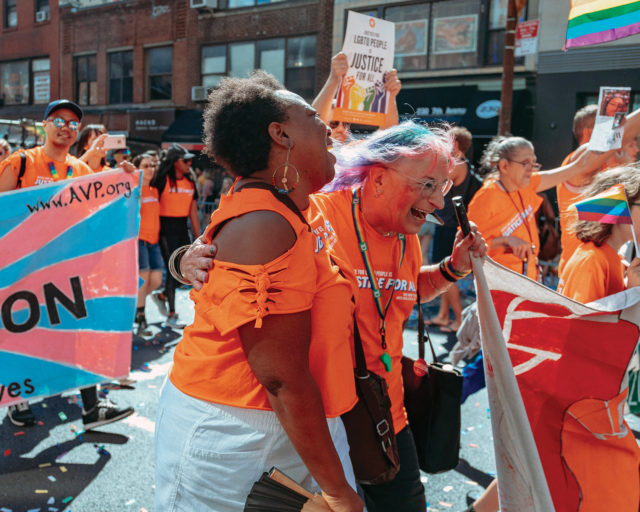
With the current administration attempting to block health care coverage for transgender persons — a group that, without additional restrictions, already suffers disproportionately from lack of access — the problems look to become more severe.
One potential solution speaks to Tillery’s roots in organization: on the ground outreach and education — changing one heart and one mind at a time. “Some of the more powerful things that I’ve seen recently have just been regular people, friends, colleagues, who are actually talking about these issues to people who would never hear about them, who would never be engaged around issues concerning trans and gender non-conforming people. This has to be a regular conversation that everybody is having,” she tells GO. “So, just make it part of your vocabulary and engage people who you know are the least likely to know about it, care about it — make that happen. I just think it would be really powerful.”
Most importantly, perhaps, is her reminder that none of us should stand back and do nothing if we are witnesses to violence and other forms of homophobic, transphobic, or racist rhetoric and acts. “What people do doesn’t have to be the biggest, grandest gesture. It really is about everyday things. You’re making a commitment every day to say, ‘This is not okay and I’m going to do something.’”
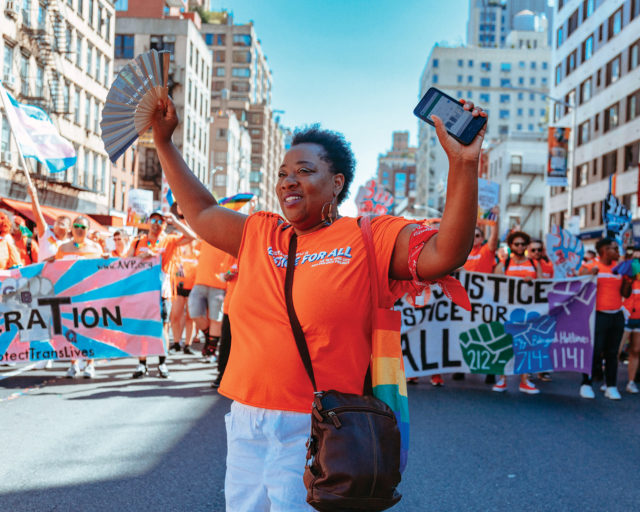
The AVP’s website offers users a chance to take a stand against everyday acts of violence. #IWillNotStandBy offers users advice for how to intercede when witnessing acts of violence or discrimination. #ValueTransLives offers more specific suggestions for supporting transgender persons and includes a video conversation between Tillery and activists Victoria Cruz and Lala Zannell — both former clients who went on to work with, and become, visible advocates and organizers of the organization.
Although her training as an organizer prepared Tillery to be the support for others seeking the leadership limelight, she is becoming more comfortable with the role. “I think there are still some ways that I struggle with it,” she tells GO, “because I would much rather promote other people who are doing the work. I think, though, what got me there was that I felt like being in a more senior position would give me the opportunity to change an organizational culture in a way I really wanted to.”
When not at work, Tillery can be found at her home in Harlem, where she and her partner Roz Lee — who happened to buy her the #blackwomenlead shirt featured on PBS — and daughter Stella run occasional salons in Harlem Renaissance style. “We bring people together — all kinds of people together in our home to celebrate artists or just each other,” she says. “Community is what keeps us going.”
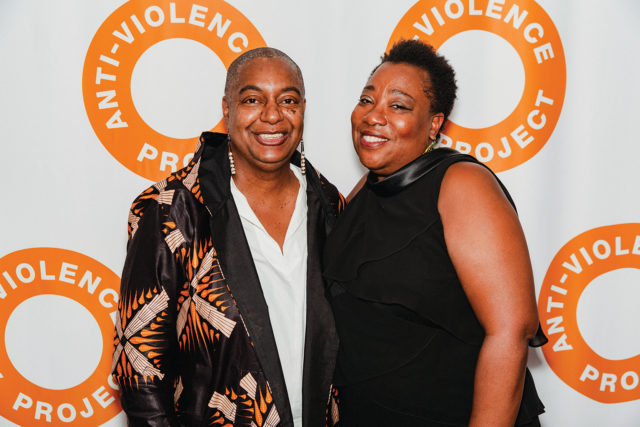
The New York City Anti-Violence Project is excited to be celebrating 40 years of working to end violence against LGBTQ and HIV-affected communities. On January 23, 2020, AVP is hosting the first installment in a series of panels. Join them to hear from the founder of AVPs, who built the foundation of our work today, and from anti-violence leaders on strategies for violence prevention in our current sociopolitical climate.

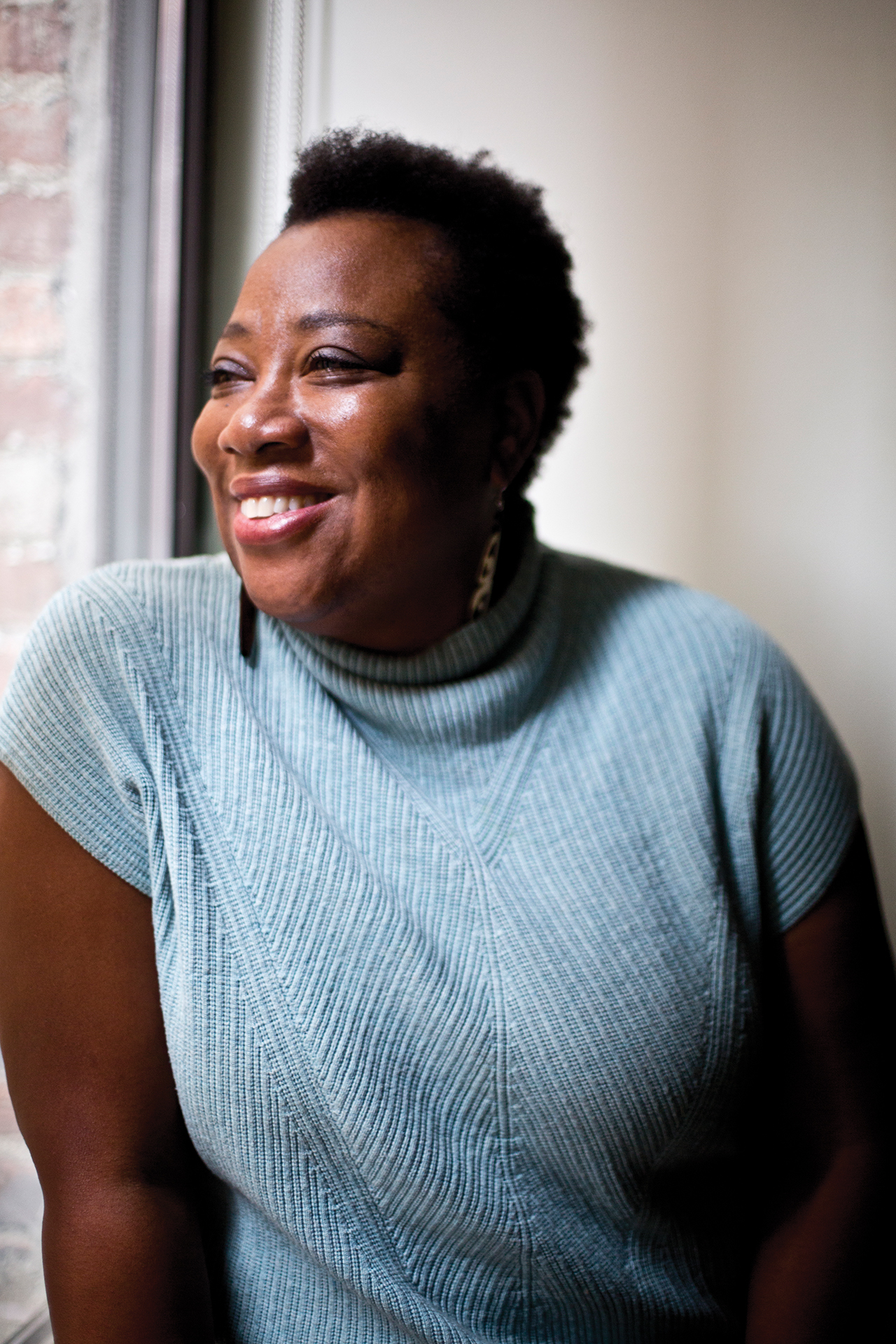
What Do You Think?